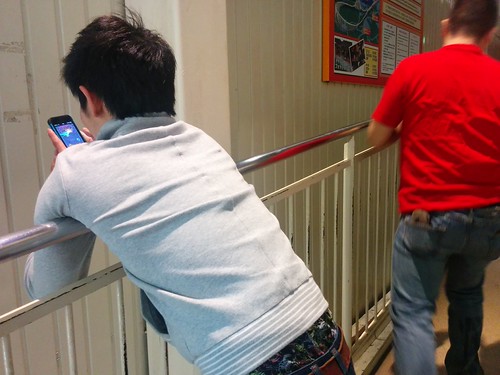
Interesting piece from Vice about Snapchat camera shots, replacing standard photos. I tend to put snapchat in a similar category as Instagram which I’ve written about previously. I picked out some of the highlights…
Writer Arushi feels similarly, and has written about the way Snapchat has started to make people view themselves. “I’ve found myself becoming dependent on filters to validate my appearance in selfies on more occasions than one. Honestly, it scares me because that’s so screwed up,” she said over Twitter DMs. “We’d rather have a digitally obscured version of ourselves than our actual selves out there. It’s honestly sad, but it’s a bitter reality. I try to avoid using them as much as I can because they seriously cause an unhealthy dysphoria.”
“This behavior supports the vision that a social body—self objectified—is more relevant than the real felt body.”
Plus some questions about self-objectfication
Dr. Giuseppe Riva, a professor of communication psychology at the Catholic University of Milan, told VICE that social media activity promotes self-objectification. “This is particularly true for Snapchat and Instagram, which provide a mirror-like vision of young women, which is also altered and shared,” he said. “This behavior supports the vision that a social body—self-objectified—is more relevant than the real felt body.”
Those taking Snapchat selfies aren’t just experiencing the effects themselves. Talullah, from Kent, described how men were starting to believe that Snapchat-filtered photos were accurate portrayals of the people in them. “Some guys I speak to say stuff like, ‘You don’t look like your Snaps,'” she explained. “It’s like, ‘Dude, I’m not walking around with a headband of sparkly stars around my head.'”
These apps are too new for any proper scientific studies to have been carried out on the potential long-term consequences for some users. But Dr. Riva flagged eating disorders, alongside body dysmorphic disorder, as possible effects. “Self-objectification—thinking about and monitoring the body’s appearance from an external observer’s perspective—is the largest contributor to both the onset of eating disorders and its maintenance. This is what we discovered in our research,” he told me.
I mentioned on a work slack how much I find people who use Snapchat and Instagram filters on dating profiles close to deplorable. It sounds harsh but I feel like they are deliberately trying to deceive (consciously or unconsciously).
Of course I find dating sites partly responsible for encouraging people to connect their instagram accounts, in the hope they can ram-raid another pool of personal data. The whole thing feels misguided and maybe irresponsible. Another thing I read shared from a colleague at work, might start to explain how these things are held up and thought to be a good idea.
…mathematics, engineering and computer science are wonderful disciplines – intellectually demanding and fulfilling. And they are economically vital for any advanced society. But mastering them teaches students very little about society or history – or indeed about human nature. As a consequence, the new masters of our universe are people who are essentially only half-educated. They have had no exposure to the humanities or the social sciences, the academic disciplines that aim to provide some understanding of how society works, of history and of the roles that beliefs, philosophies, laws, norms, religion and customs play in the evolution of human culture.
The problem is the rest of us are just ignoring the “disconcerting sociological phenomena that are embedded into the very nature of today’s social media platforms” or we can’t be bothered to think deeply about this all? Although as I’ve said before, there is a massive industry wanting to keep the thinking that way.
https://twitter.com/RealMoseby96/status/855165277985804289/
.@Snapchat wanna tell me why u thought this yellowface was ok?? pic.twitter.com/sgpW4AFPsE
— grace (@tequilafunrise) August 9, 2016
Suddendly the term “disconcerting sociological phenomena” seems a lot more apt…!






